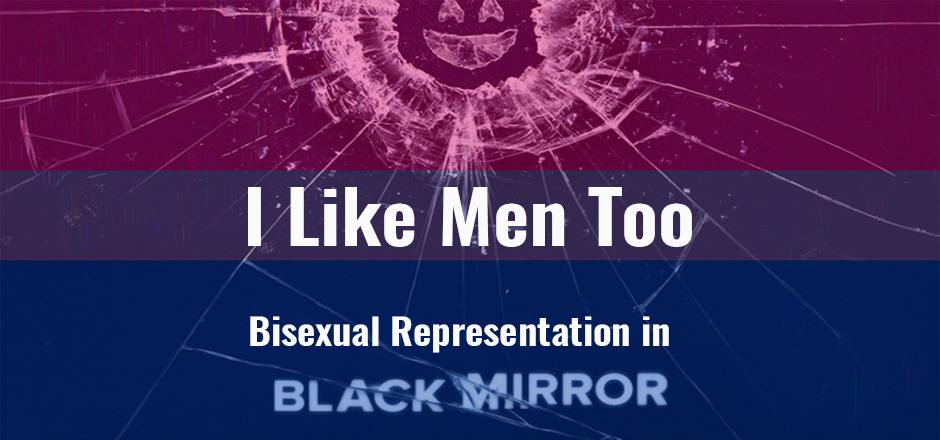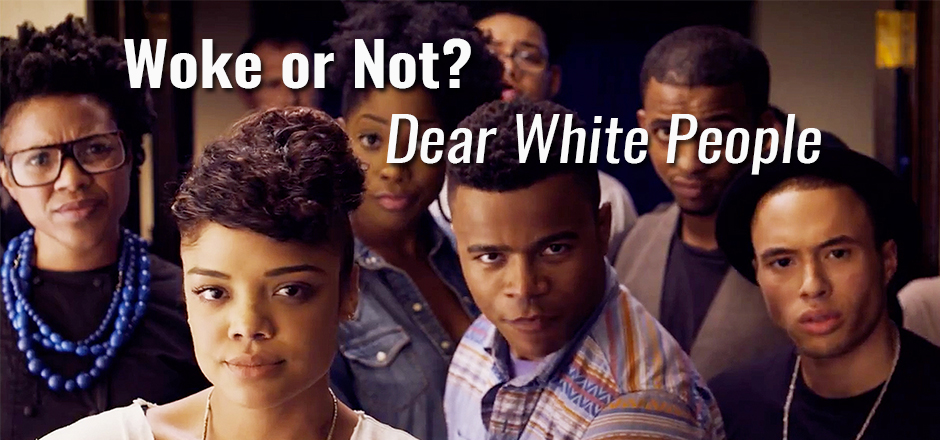I was overjoyed when I first discovered The Unbreakable Kimmy Schmidt. Finally, a new show from Tina Fey, and it passes the Bechdel test in the first episode and proclaims that “females are strong as Hell” in the theme song. As a young woman going through the transition from college student to real adult person, Kimmy’s character was refreshing and inspiring to me. I graduated from a university that’s surrounded by cornfields and immediately moved to Chicago. Now, I’m not suggesting that going to school in rural southern Ohio was as sheltering as being trapped in a bunker like Kimmy – at least not quite. But when I first moved to Chicago, I felt as lost as Kimmy does when she starts out in New York City.
When I was brainstorming ideas for this month’s issue, I immediately thought about Kimmy’s growth and how positive it was for me to watch. I also relate pretty intensely to her roommate, Titus Andromedon. I do theatre in my free time, and his struggles to make it as an actor are extremely familiar. The show is full of theatre in-jokes that felt like they were put there for me to find. I think I snorted when Titus announced he was auditioning for ‘Spidermen Too: 2 Many Spidermen,’ and I definitely winced at his outrageously out-of-date head shot.
In fact, I still think the show is great in many ways. I can’t stop quoting it, and like 30 Rock, the more times you watch Kimmy Schmidt, the more jokes you discover. But as I’ve been re-watching and researching the show, I’ve realized that I was so excited by what this show said to me personally that I completely missed the way that the show fails other people.
As a middle-class, college-educated white woman, it was easy for me to watch the show without giving a second thought to the way it stereotypes. I wish I could say differently, but it took reading other articles about the show for me to realize that while it spoke to me, it could be hurtful to the minority groups it portrays.
I’m hesitant to tackle the race problems in Kimmy Schmidt because when it comes down to it, I’m afraid that anything I say will sound condescending. The truth is that I’ve never faced racial discrimination, so while I empathize, I can never truly understand how hurtful stereotypical representations of race can be. But I do recognize that there are some glaring issues with the representation of non-white characters on Kimmy Schmidt.
[blocktext align=”right”]I was so excited by what this show said to me personally that I completely missed the way that the show fails other people.[/blocktext]For example, I find the character of Dong troubling. He is a likeable character, and the love story between him and Kimmy is very sweet. It is also (unfortunately) progressive of the show that Kimmy’s main love interest is a non-white character. But I would have hoped that a writing team as strong as the one on this show would have moved past making fun of someone’s struggles to learn English.
Equally problematic is Jacqueline Vorhees, played by Jane Krakowski, who’s revealed to be a Native American woman passing for white. That in and of itself is somewhat problematic, but if that is the plot line they decided to go with, the role could and should have gone to a Native American actress. In flashback scenes, Krakowski is shown with reddened skin and dark roots. To me, this savors too much of blackface to write it off as a quirky joke.
I also would’ve hoped that the female stereotypes associated with Jacqueline could’ve been avoided. She’s vain, money-obsessed, and shallow. Where Kimmy’s character blasts through conventions associated with an ingénue in a hundred ways and remains relatable, Jacqueline perpetuates stereotypes associated with wealthy middle-aged women. The joke of her character always seems to be ‘look at this materialistic trophy wife.’ This trope is extremely tired in general, but considering Krakowski played an extremely similar character on 30 Rock, it’s disappointing to see it arise again on Kimmy Schmidt.
The message of this show is so brashly feminist that I struggle to understand the inclusion of a character like Jacqueline. Any complexity the character might show when she’s facing loneliness and impending divorce is immediately undermined by a comment about her weight or wealth.
I’m sure some people will argue that on a comedy like this, anything is up for grabs. And there are satiric moments on the show that expose racism – like the headline “WHITE WOMEN FOUND – Hispanic woman also found” when the ‘mole women’ are first freed from the bunker. But in my opinion, it isn’t a matter of balancing the scales.
So while I enjoyed this show and took a lot away from it that was positive, I cannot pretend that it stands up to scrutiny. I still find parts of it hilarious, and I’ll always root for Tina Fey in whatever she does. I wish more theme songs were simultaneously catchy and ultra-feminist.
But it cannot be denied that there are some problems with the way people are represented on the show. I hope the discussions sparked by the problematic aspects of the show challenge people to think critically, even about comedy, because if these issues are ignored they will continue to arise.
—
Laura Jewell writes for Girls in Capes and has a BA in Theatre from Miami University. She currently lives in Chicago and enjoys many fandoms, including her favorites Harry Potter and Doctor Who. Her favorite weekend pastime is curling up with a book and her fifteen-pound orange cat, Orange Cat.







Totally agree on representation and Krakowski playing a Native American. I will say, though, her parents’ characters are hilarious in the ways they poke fun at stereotypes.
Another thing the show does well not-so-subtly jabbing at the Midwest. The clash of culture when Kimmy first arrives in NYC and loves everything from the 90s definitely speaks to the thought that Midwesterners are often thought of “being behind the times” or “living under a rock.” When Kimmy’s step-dad was first introduced, my first thought was “this is a gross caricature of Midwestern life,” but sooner or later I starting thinking “I may actually know people like this.” I don’t watch comedies often, so the show is hit or miss for me.